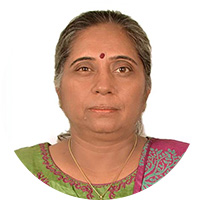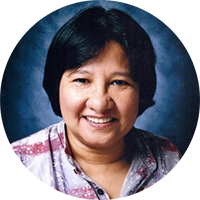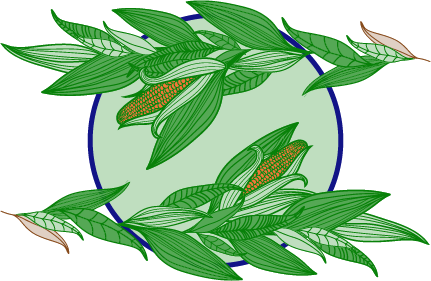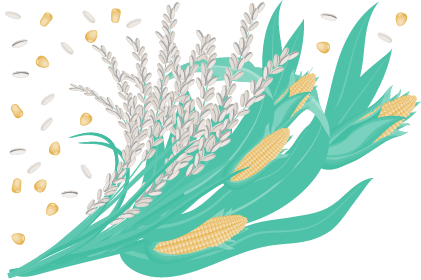Third Capacity Building Workshop on Food Safety Assessment of Genetically Engineered Plants
-

August 20, 2025-August 22, 2025
9:30 am - 5:00 pmThe LaLiT
New Delhi, India
Background
Stakeholders in South Asian countries have discussed regional harmonization of biosafety risk assessment and regulation in the area since 2014. Given the interest in advancing a consensus approach to harmonization of safety assessment of foods derived from genetically engineered (GE) plants, the Agriculture & Food Systems Institute obtained support from the United States Department of Agriculture (USDA) Emerging Markets Program (EMP) to work with these stakeholders towards a formalized approach to regional harmonization in South Asia. AFSI established an Expert Working Group (EWG) in September of 2020 with representation from Bangladesh, Bhutan, India, and Sri Lanka. All experts were nominated by Competent National Authorities in their respective countries; however, they participated in the deliberations in their individual capacities. The EWG, after several rounds of drafting, review, and discussion, developed a guidance document that describes a consensus approach to the safety assessment of foods derived from GE crops for application across the participating countries, based upon the Codex Alimentarius Guideline for the Conduct of Food Safety Assessment of Foods Derived from Recombinant-DNA. Additionally, tailored approaches for the adoption and operationalization of the regional guidance in each of the respective countries were discussed.
Overview
As part of the operationalization of the consensus approach to safety assessment in India, the first two-day technical training program on food and feed safety assessment was implemented by the Agriculture & Food Systems Institute (AFSI), in collaboration with the Food Safety and Standards Authority of India (FSSAI) and Biotech Consortium India Limited (BCIL), on September 5-6, 2023. This training program was structured to provide risk assessors on the FSSAI GM panel with in-depth technical information about the purpose, design, and conduct of studies used to inform safety assessments of foods and feeds derived from genetically engineered (GE) plants, aligned with the consensus approach. The program helped establish a baseline understanding of the concepts and principles of safety assessment for food and feed derived from GE plants. Topics included the whole food safety assessment paradigm, toxicity and allergenicity testing, compositional assessment, animal feeding studies, data transportability, and risk communication.
A second capacity building workshop on safety assessment of foods and feeds derived from genetically engineered plants was organized on June 3-4, 2025 in New Delhi. The first day of the technical training event provided an overview of food safety assessment, regulatory frameworks, and the global regulatory landscape for foods and feeds derived from genetically engineered plants, followed by a discussion about the handling of genetically engineered plants and their derived products. The second day encouraged discussion about regulatory cooperation among participants through the use of case studies, breakout groups, and guided exercises.
This technical training was the third capacity building workshop on safety assessment of foods and feeds derived from genetically engineered plants. It was designed as a hands-on training to provide a deeper understanding of the safety assessment process for selected participants. The training was based on India’s guidelines and aimed to strengthen the capacities of technical officers. Presentations, followed by breakout group exercises, covered key topics, viz., the history of safe use, molecular characterization and expressed products, potential toxicity and allergenicity assessment, and compositional analysis. Additionally, the training covered the transportability of data and internet resources for food and feed safety assessment. Participants were given a case study to analyze throughout the workshop and prepared a safety assessment summary.

Agenda
Day 1
August 20, 2025 | 9:30 am - 5:00 pm
| Time (IST) | Activity | Presenter | |
| 9:30 am | Welcome and Introductions (participants and resource persons) | Dr. Vibha Ahuja Chief General Manager, Biotech Consortium India Limited (BCIL) and Senior Advisor, South Asia Biosafety Program (SABP), India |
|
| 9:50 am | Introduction to the Agriculture & Food Systems Institute (AFSI) Key Learnings from the Two Capacity Building Workshops Held in 2023 and 2025 Review of the Agenda |
Dr. Bhavneet Bajaj Senior Manager – Scientific Programs, Agriculture & Food Systems Institute (AFSI), USA |
|
| 10:00 am | Remarks | Dr. Dinesh Kumar Chair, Scientific Panel on GM Foods, India |
|
| 10:10 am | Remarks | Dr. Alka Rao Advisor – Science, Standards & Regulations, Food Safety and Standards Authority of India |
|
| 10:20 am | Key Concepts for the Safety Assessment of Genetically Engineered Plants | Dr. Flerida A. Cariño Consultant, Philippines Food and Drug Administration and Former Professor of Biochemistry, University of the Philippines–Diliman |
|
| 10:55 am | Vote of Thanks | Dr. Vibha Ahuja | |
| 11:00 am | Tea Break | ||
| 11:30 am | Indian Council of Medical Research (ICMR) Guidelines for Assessing Foods and Feeds Derived from Genetically Engineered Plants | Dr. Vibha Ahuja | |
| 11:50 am | Global Status of Genetically Engineered Plants | Dr. Bhavneet Bajaj | |
| 12:10 pm | The Host and Donor Organisms | Dr. Flerida Cariño | |
| 12:30 pm | Organisation for Economic Co-operation and Development (OECD) Consensus Documents on Biology and Compositional Considerations and Other Resources Exercise 1: Breakout Groups |
Dr. Bhavneet Bajaj | |
| 1:00 pm | Lunch | ||
| 2:00 pm | Exercise 1 (continued) | ||
| 2:30 pm | Molecular Characterization of Genetically Engineered Plants and Expressed Materials Exercise 2: Breakout Groups |
Dr. Bhavneet Bajaj | |
| 4:00 pm | Tea Break | ||
| 4:30 pm | Exercise 2 (continued) | ||
| 5:00 pm | End of Day 1 |
Day 2
August 21, 2025 | 9:30 am - 5:00 pm
| Time (IST) | Activity | Presenter | |
| 9:30 am | Recap and Questions from Day 1 | Dr. Bhavneet Bajaj | |
| 10:00 am | Assessment of Possible Toxicity of Novel Proteins: Proteins as Toxins, the Weight of Evidence Approach, and In vivo Toxicity Studies | Dr. Flerida Cariño | |
| 10:30 am | Exercise 3: Breakout Groups | ||
| 11:00 am | Tea Break | ||
| 11:30 am | Exercise 3 (continued) | ||
| 12:30 pm | Assessment of Possible Allergenicity of Novel Proteins: Bioinformatics, Protein Digestibility, and Other Requirements viz. Serum Testing | Dr. Vibha Ahuja | |
| 1:00 pm | Lunch | ||
| 2:00 pm | Exercise 4: Breakout Groups | ||
| 3:00 pm | Transportability of Data for the Safety Assessment of Genetically Modified Plants | Dr. Bhavneet Bajaj | |
| 3:30 pm | Tea Break | ||
| 4:00 pm | Understanding Animal Feeding Studies in the Context of Genetically Engineered Food/Feed Safety Assessments When are Animal Feeding Studies Informative? Toxicology Studies vs. Nutritional Non-Inferiority Studies |
Dr. Andrew F. Roberts (virtual) | |
| 4:30 pm | Open Forum (Ask Anything) | ||
| 5:00 pm | End of Day 2 |
Day 3
August 22, 2025 | 9:00 am - 2:00 pm
| Time (IST) | Activity | Presenter | |
| 9:30 am | Recap and Questions from Day 2 | Dr. Bhavneet Bajaj | |
| 10:00 am | Compositional Analysis of Key Components: AFSI Crop Compositional Database | Dr. Bhavneet Bajaj | |
| 10:30 am | Exercise 5: Menti-Guided | ||
| 11:00 am | Tea Break | ||
| 11:30 am | Preparation of a Safety Assessment Summary | Dr. Flerida Cariño and Dr. Vibha Ahuja | |
| 12:00 pm | Exercise 6: Breakout Groups | ||
| 12:30 pm | Internet Resources for Food Safety Assessment | Dr. Bhavneet Bajaj | |
| 1:00 pm | Exercise 7: Menti-Guided | ||
| 1:30 pm | Post-Event Survey | ||
| 2:00 pm | Close of Workshop | ||
| Lunch |
Speakers
Vibha Ahuja, Ph.D.
Chief General Manager, Biotech Consortium India Limited (BCIL) and Senior Advisor, South Asia Biosafety Program, India
 Dr. Vibha Ahuja is the Chief General Manager of Biotech Consortium India Limited (BCIL), where she began her career in 1993. She is an expert in biosafety and regulatory affairs, particularly in relation to genetically modified organisms, with over 30 years of experience in the field. Dr. Ahuja is deeply familiar with the Indian biosafety regulatory framework and has contributed to the formulation and dissemination of national guidelines, as well as serving as a member of expert committees. Her work includes providing regulatory compliance support to facilitate the commercialization of biotechnology innovations. She is also actively engaged as a regional resource expert on gene-edited plants. Throughout her career, Dr. Ahuja has led numerous biosafety capacity-building initiatives in India and South Asia, delivering training through seminars, workshops, and national and international programs. She has also authored a range of publications addressing biosafety, biodiversity, and related stakeholder concerns.
Dr. Vibha Ahuja is the Chief General Manager of Biotech Consortium India Limited (BCIL), where she began her career in 1993. She is an expert in biosafety and regulatory affairs, particularly in relation to genetically modified organisms, with over 30 years of experience in the field. Dr. Ahuja is deeply familiar with the Indian biosafety regulatory framework and has contributed to the formulation and dissemination of national guidelines, as well as serving as a member of expert committees. Her work includes providing regulatory compliance support to facilitate the commercialization of biotechnology innovations. She is also actively engaged as a regional resource expert on gene-edited plants. Throughout her career, Dr. Ahuja has led numerous biosafety capacity-building initiatives in India and South Asia, delivering training through seminars, workshops, and national and international programs. She has also authored a range of publications addressing biosafety, biodiversity, and related stakeholder concerns.
Bhavneet Bajaj, Ph.D., PMP
Senior Manager, Agriculture & Food Systems Institute (AFSI), USA
 Dr. Bhavneet Bajaj joined the Agriculture & Food Systems Institute (AFSI) in July 2018 as Scientific Program Manager. She has been involved in projects related to safety assessment of foods and feeds derived from genetically engineered plants and serves as a resource person in providing technical support for capacity building programs in biotechnology. She was also the program lead for USDA-funded technical training for Chinese and Indonesian regulators and manages operations for both the Crop Composition Database and the World Nutrient Databases for Dietary Studies.
Dr. Bhavneet Bajaj joined the Agriculture & Food Systems Institute (AFSI) in July 2018 as Scientific Program Manager. She has been involved in projects related to safety assessment of foods and feeds derived from genetically engineered plants and serves as a resource person in providing technical support for capacity building programs in biotechnology. She was also the program lead for USDA-funded technical training for Chinese and Indonesian regulators and manages operations for both the Crop Composition Database and the World Nutrient Databases for Dietary Studies.
Prior to joining AFSI, Dr. Bajaj was a Visiting Scientist at the Sustainable Agricultural Systems Laboratory, Agricultural Research Service, USDA, where she worked on carotenoid pathway regulation in tomatoes. Before then, she was Associate Investigator with the Plant Protection group at (then) DuPont, where she devised a metabolic engineering strategy for insect control in soybean. While in India, she was an Assistant Professor at Jaipur National University, where she taught genetic engineering, enzymology, and biochemistry courses to M.Sc. level students. Her research work over the past 12 years involved plant secondary metabolites of nutritional, agricultural, and medicinal importance.
Flerida A. Cariño, Ph.D.
Consultant, Philippines Food and Drug Administration and Former Professor of Biochemistry, University of the Philippines – Diliman
 Dr. Flerida Cariño retired in April 2019 as a full professor of biochemistry from the University of the Philippines, Diliman. At the university, she was the former director of two institutes–the Institute of Chemistry and the Institute of Environmental Science and Meteorology. She holds a Ph.D. in Insecticide Toxicology from Texas A&M University and has worked extensively with insecticide resistance genetics, biochemistry, and molecular biology.
Dr. Flerida Cariño retired in April 2019 as a full professor of biochemistry from the University of the Philippines, Diliman. At the university, she was the former director of two institutes–the Institute of Chemistry and the Institute of Environmental Science and Meteorology. She holds a Ph.D. in Insecticide Toxicology from Texas A&M University and has worked extensively with insecticide resistance genetics, biochemistry, and molecular biology.
Dr. Cariño served as a physical scientist member of the Department of Science and Technology (DOST) Biosafety Committee from 2010-2022. She has been involved in drafting policy and regulations for genetically modified organisms (GMOs) since 1994. She has served as faculty in several local and international training programmes on food safety and environmental risk assessment for several international organizations involved in biosafety capacity building and for various Philippine government institutions involved in the regulation of GMOs. She was a member of the Scientific Advisory Board of the Organization for the Prohibition of Chemical Weapons (OPCW) from 2011-2017 and has actively represented the Philippine position in the Convention on Biological Diversity and meetings of parties to the Cartagena Protocol on Biosafety of Living Modified Organisms. She is presently part of the Department of Health’s COVID Laboratory Expert Panel and is a consultant to the Philippines’ Food and Drug Administration, providing guidance on urban pesticides and risk assessments of GMOs and their products.
Dinesh Kumar, Ph.D.
Principal Scientist (Biotechnology), Bioinformatics Division, Indian Council of Agricultural Research (ICAR) Indian Agricultural Statistics Research Institute (IASRI), India
 Prof. Dr. Dinesh Kumar is a Principal Scientist in the Bioinformatics Division at the Indian Council of Agricultural Research (ICAR) Indian Agricultural Statistics Research Institute (IASRI) in New Delhi, a position he has held since 2012. He previously served as Professor, Dean of Academic Affairs, and Director of the Office of International Affairs at the Central University of Haryana (2021–2023), and as Senior Scientist at the ICAR–National Bureau of Animal Genetic Resources (NBAGR), Karnal (1997–2012). He holds undergraduate, postgraduate, and doctoral degrees in biotechnology from Banaras Hindu University (BHU), Varanasi, and earned his Ph.D. in 1997. Dr. Kumar also holds law degrees (LL.B. and LL.M.) from Kurukshetra University, a postgraduate diploma in technology management from the University of Hyderabad (where he was awarded a Gold Medal), and a diploma in intellectual property rights from IGNOU, New Delhi. He completed post-doctoral fellowships at Iowa State University, USA, in 2003–2004 and 2007–2008.
Prof. Dr. Dinesh Kumar is a Principal Scientist in the Bioinformatics Division at the Indian Council of Agricultural Research (ICAR) Indian Agricultural Statistics Research Institute (IASRI) in New Delhi, a position he has held since 2012. He previously served as Professor, Dean of Academic Affairs, and Director of the Office of International Affairs at the Central University of Haryana (2021–2023), and as Senior Scientist at the ICAR–National Bureau of Animal Genetic Resources (NBAGR), Karnal (1997–2012). He holds undergraduate, postgraduate, and doctoral degrees in biotechnology from Banaras Hindu University (BHU), Varanasi, and earned his Ph.D. in 1997. Dr. Kumar also holds law degrees (LL.B. and LL.M.) from Kurukshetra University, a postgraduate diploma in technology management from the University of Hyderabad (where he was awarded a Gold Medal), and a diploma in intellectual property rights from IGNOU, New Delhi. He completed post-doctoral fellowships at Iowa State University, USA, in 2003–2004 and 2007–2008.
Dr. Kumar currently chairs the GMO and Foods Scientific Panel of the Food Safety and Standards Authority of India (FSSAI), Ministry of Health and Family Welfare, Government of India. He has served as a member of the DST/SERB Task Force in plant sciences (2020–2023). With over 100 research publications in high-impact journals and more than 50 patents and copyrights, his notable scientific contributions include the world’s first cow genome sequencing (Science, 2009), discovery of the dwarfism gene in U.S. beef cattle (PNAS, 2009), and development of the world’s first DNA signature server for plant varieties (Scientific Reports, 2019). He is also known for his work on wheat microbiomes and bioethanol production. In addition to his research, Dr. Kumar is a motivational speaker, provides free career counseling to students, offers legal support to academic victims, and is actively involved with orphanage initiatives.
Alka Rao, Ph.D.
Advisor–Science, Standards & Regulations, Food Safety and Standards Authority of India (FSSAI), India
 Prof. Dr. Alka Rao is a distinguished protein engineer and molecular microbiologist with over 15 years of research experience. She currently leads the Science & Standards & Regulations divisions at the Food Safety and Standards Authority of India (FSSAI), where she collaborates with more than 250 experts to develop food safety standards, guidance documents, codes of practice, and regulatory frameworks. Dr. Rao also serves as the liaison officer with the Codex Alimentarius Commission and the Enquiry Point for the WTO-SPS Committee.
Prof. Dr. Alka Rao is a distinguished protein engineer and molecular microbiologist with over 15 years of research experience. She currently leads the Science & Standards & Regulations divisions at the Food Safety and Standards Authority of India (FSSAI), where she collaborates with more than 250 experts to develop food safety standards, guidance documents, codes of practice, and regulatory frameworks. Dr. Rao also serves as the liaison officer with the Codex Alimentarius Commission and the Enquiry Point for the WTO-SPS Committee.
Her scientific contributions include the discovery of rare bacterial enzymes and the successful launch of a microbial agricultural product. She has led 22 research and development projects, published over 50 international papers, and secured seven granted patents out of more than 15 filed. Her societal impact was recently featured in a Nature (UK) “Career Feature” in February 2024.
Dr. Rao is an active member of the global scientific community, serving as an Associate Editor for Chemical Papers, a member of the Editorial Board of Scientific Reports, and part of the Executive Council of the Proteomics Society of India. She has contributed her expertise to numerous government bodies, including the Ministry of Health and Family Welfare, the Ministry of Environment, Forest and Climate Change, the Ministry of Education, the Department of Biotechnology, and the National GLP Compliance Monitoring Authority.
She played a pivotal role in amending India’s Biological Diversity Act of 2002 and in shaping national positions on digital sequence information and access and benefit sharing. As Chairperson of FSSAI’s Scientific Panel on Food Additives, she was instrumental in aligning Indian standards with global norms.
Dr. Rao’s outreach work includes advocacy for the “Eat Right India” campaign within the deaf community and contributions to CSIR and DST public engagement initiatives. She has received over 15 awards and fellowships, including the Zero Project Award 2024 and recognition from the National Centre for Promotion of Employment for Disabled People (NCPEDP). In 2023, she was honored as one of the “Women Scientist Achievers” in CSIR laboratories.
Andrew Roberts, Ph.D.
Chief Executive Officer, Agriculture and Food Systems Institute (AFSI), USA
 Dr. Andrew Roberts joined the Agriculture and Food Systems Institute (AFSI) in December 2009 as the Deputy Director of the Center for Environmental Risk Assessment (CERA), where he developed tools and materials for use in training and capacity building related to the problem formulation approach to environmental risk assessment and served as the coordinator for CERA’s capacity building projects under the USAID-funded South Asia Biosafety Program (SABP) and the World Bank-funded Partnership for Biosafety Risk Assessment and Regulation, in Bangladesh, Pakistan, and Vietnam. He also provided technical support for capacity building work in Brazil, India, Japan, Chile, and South Africa. In January 2015, he became the director of CERA, as well as the Center for Safety Assessment of Food and Feed (CSAFF), which worked on food and feed safety assessment for foods derived from genetically engineered plants. The two centers were later consolidated under the Research Foundation, for which he became Deputy Executive Director in January 2017. When the organization became the Agriculture and Food Systems Institute in 2020, his title shifted to Vice President – Biotechnology, and he assumed the role of Chief Executive Officer later that year.
Dr. Andrew Roberts joined the Agriculture and Food Systems Institute (AFSI) in December 2009 as the Deputy Director of the Center for Environmental Risk Assessment (CERA), where he developed tools and materials for use in training and capacity building related to the problem formulation approach to environmental risk assessment and served as the coordinator for CERA’s capacity building projects under the USAID-funded South Asia Biosafety Program (SABP) and the World Bank-funded Partnership for Biosafety Risk Assessment and Regulation, in Bangladesh, Pakistan, and Vietnam. He also provided technical support for capacity building work in Brazil, India, Japan, Chile, and South Africa. In January 2015, he became the director of CERA, as well as the Center for Safety Assessment of Food and Feed (CSAFF), which worked on food and feed safety assessment for foods derived from genetically engineered plants. The two centers were later consolidated under the Research Foundation, for which he became Deputy Executive Director in January 2017. When the organization became the Agriculture and Food Systems Institute in 2020, his title shifted to Vice President – Biotechnology, and he assumed the role of Chief Executive Officer later that year.
Prior to joining AFSI, Dr. Roberts worked at the U.S. Department of Agriculture (USDA) in several different capacities, all related to the regulation of agricultural biotechnology. He began his career at USDA as an AAAS Risk Policy Fellow in the Office of Science of Biotechnology Regulatory Services (BRS), the group responsible for regulating genetically engineered plants at USDA’s Animal Plant Health Inspection Service. After spending a year in the New Technologies office of the Foreign Agricultural Service serving as the lead for USDA’s efforts related to the Cartagena Protocol on Biosafety, he returned to BRS to serve in the International Affairs branch where he remained until joining AFSI.




